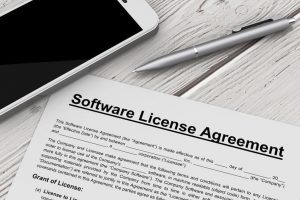 When you’re licensing software to someone else, you’ll want to the license granted by your software agreement to be non-exclusive so that you can license it to others too.
When you’re licensing software to someone else, you’ll want to the license granted by your software agreement to be non-exclusive so that you can license it to others too.
Naturally, a premium price should be paid for exclusivity because it eliminates your ability to sell licenses to others in the market.
However, it does make sense sometimes to offer limited exclusivity when software licensing. For instance, you may provide a license that’s exclusive by a geographic area and/or within a particular industry niche. These limitations are designed to protect the licensee from a competitor purchasing the application.
Of course, you may want to charge a premium for this limited exclusivity too because it does restrict your ability to sell to others within that area or niche.
And you can offer a time-limited exclusivity as well.
For example, let’s say you have a dental practice software application that you want to license by geographic area to dentists. But you don’t want it to be perpetually exclusive.
One possible solution would be an end user license agreement (EULA) to one dental practice in a single zip code that’s exclusive for 24 months. After the two years have passed, the license is nonexclusive so that you can sell licenses to other dentists in the same zip code.
An experienced software lawyer can craft a bespoke licensing agreement that meets your exclusivity needs. If you want help with this from Software Lawyer Mike Young, the first step is to set up a phone consultation with him.
